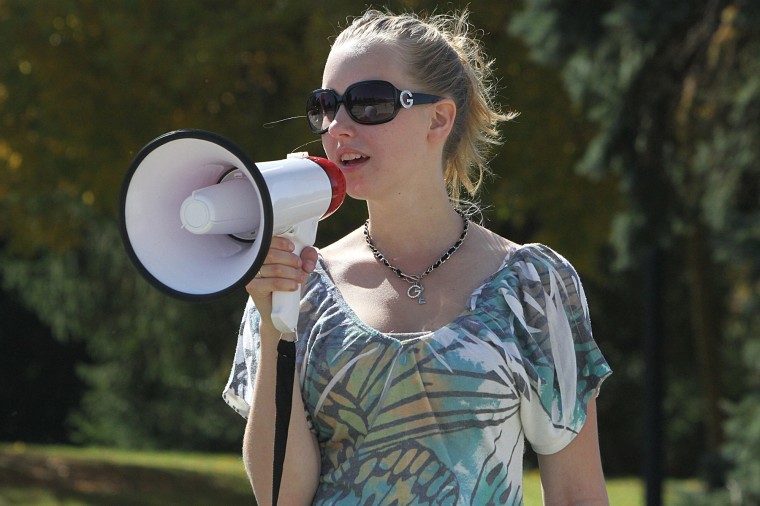Students go without shoes for a cause
Industrial engineering major Alyssa Bramm encourages students to donate shoes for children in Africa Tuesday afternoon in MLK Commons. The event was a part of Engineers Without Borders’ ‘A Day Without Shoes.’
October 4, 2011
Tuesday marked the Engineers Without Borders’ (EWB) first annual “A Day Without Shoes” event.
From 10 a.m. to 5 p.m., members of several groups, including EWB, Alpha Phi Omega, National Society of Black Engineers (NSBE) and Institute of Industrial Engineers, gathered in the Martin Luther King, Jr. Memorial Commons in order to raise awareness for children in other countries who go without shoes everyday.
Richard Washington, industrial engineering graduate student, participated in the event with NSBE.
“[We are] basically doing this for the children of Africa,” Washington said.
Groups offered students a chance to take off their shoes and walk in piles of dirt or rocks.
“One day, a day…how about everyday without shoes?” said Alan Hurt, EWB president and organizer of the event. “The future belongs to the few of us who are still willing to get our feet dirty.”
Group members also collected shoes from students to donate to children in developing countries. Shoes inappropriate for children, like high heels and cleats, will be donated to halfway homes and the poor around northern Illinois, Hurt said.
Participants also sold cotton candy, cookies and other food items for a dollar to raise money for the cause.
Justin Rosado, freshman mechanical engineering major, said he chose to participate in the event with EWB because he thought it was a good cause and a fun idea.
“I don’t really like to wear shoes [but] they don’t have a choice,” Rosado said. “It gives us an opportunity to live a day in the life.”
EWB plans to host another event in April to coincide with the National Day Without Shoes, as well as a charity benefit concert, Hurt said.
“[These events are] aimed at raising awareness for improving the lives of those that are less fortunate,” Hurt said. “Not only locally, but in developing parts of the world as well.”







